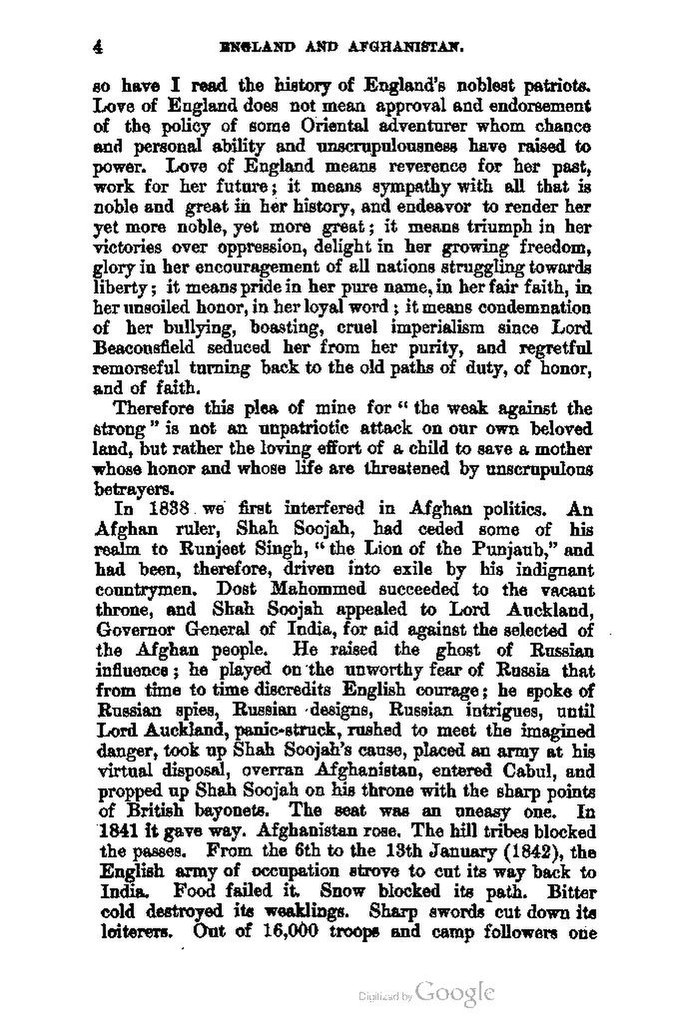so have I read the history of England's noblest patriots. Love of England does not mean approval and endorsement of the policy of some Oriental adventurer whom chance and personal ability and unscrupulousness have raised to power. Love of England means reverence for her past, work for her future; it means sympathy with all that is noble and great in her history, and endeavor to render her yet more noble, yet more great; it means triumph in her victories over oppression, delight in her growing freedom, glory in her encouragement of all nations struggling towards liberty; it means pride in her pure name, in her fair faith, in her unsoiled honor, in her loyal word; it means condemnation of her bullying, boasting, cruel imperialism since Lord Beaconsfield seduced her from her purity, and regretful remorseful turning back to the old paths of duty, of honor, and of faith.
Therefore this plea of mine for "the weak against the strong" is not an unpatriotic attack on our own beloved land, but rather the loving effort of a child to save a mother whose honor and whose life are threatened by unscrupulous betrayers.
In 1838 we first interfered in Afghan politics. An Afghan ruler, Shah Soojah, had ceded some of his realm to Runjeet Singh, "the Lion of the Punjaub," and had been, therefore, driven into exile by his indignant countrymen. Dost Mahommed succeeded to the vacant throne, and Shah Soojah appealed to Lord Auckland, Governor General of India, for aid against the selected of the Afghan people. He raised the ghost of Russian influence; he played on the unworthy fear of Russia that from time to time discredits English courage; he spoke of Russian spies, Russian designs, Russian intrigues, until Lord Auckland, panic-struck, rushed to meet the imagined danger, took up Shah Soojah's cause, placed an army at his virtual disposal, overran Afghanistan, entered Cabul, and propped up Shah Soojah on his throne with the sharp points of British bayonets. The seat was an uneasy one. In 1841 it gave way. Afghanistan rose. The hill tribes blocked the passes. From the 6th to the 13th January (1842), the English army of occupation strove to cut its way back to India. Food failed it. Snow blocked its path. Bitter cold destroyed its weaklings. Sharp swords cut down its loiterers. Out of 16,000 troops and camp followers one
